“Always read something that will make you look good if you die in the middle of it.” — P.J. O’Rourke
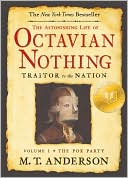 |
The Astonishing Life of Octavian Nothing, Traitor to the Nation: Volume !: The Pox Party, by M.T. Anderson An astonishingly rich historical novel, right up there with the Aubrey/Maturin series by Patrick O’Brian. I am staggered by the quality and depth of M.T. Anderson’s writing. I couldn’t put the book down. How in the world did this work get shelved with books for teenagers? Yes, young people will love reading it and will learn from it, but so will the rest of us. Harry Potter? A Hostess Twinkie snarfed down in the back of the bus on the way to school. Octavian Nothing? A seven-course meal with your dearest friends, lasting from early afternoon into the night, followed by brandy and cigars, then sex. I really can’t say enough about this book. You must read it. |
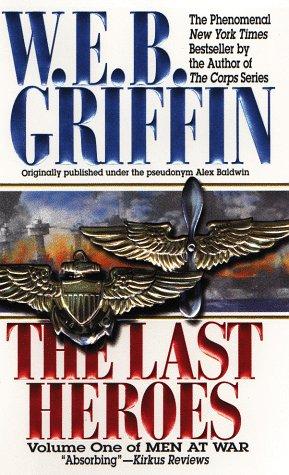 |
The Last Heroes (Men at War Series #1), by W.E.B. Griffin I recently read my first W.E.B. Griffin novel, The Corps: Semper Fi, and loved it. This one featured the same men and women, only wearing different uniforms and using different names. I will give Mr. Griffin another try, though. Maybe he called this one in. Hey, I understand. |
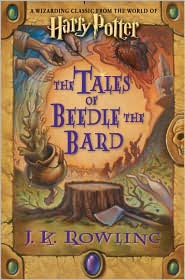 |
The Tales of Beedle the Bard, by J.K. Rowling I’ve always read books for young people as if they were written for adults and have been richly rewarded for doing so: Michael De Larrabeiti’s Borrible Trilogy, Philip Pullman’s His Dark Materials trilolgy, M.T. Anderson’s The Astonishing Life of Octavian Nothing (reviewed above), Lemony Snicket, Shel Silverstein, most science fiction . . . but when it comes to J.K. Rowling’s Harry Potter series, the rewards, for adults, are meager. When it comes to this . . . thing, J.K. Rowling’s attempt to recreate the childrens’ literature of her shallow world of young wizards and witches, the rewards are so incredibly tiny they have become a literary black hole, sucking in all desire to read further. |
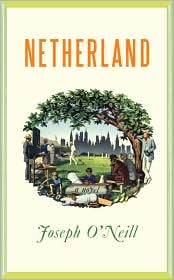 |
Netherland, by Joseph O’Neill I didn’t warm up to Netherland. There are riches here — Hans’ failed marriage, his status as an alien in New York City, the unfolding story of Chuck the con-man and hustler — O’Neill is a damn fine writer. But Hans is not a sympathetic character and I think that was O’Neill’s intention. I’m glad I read Netherland, but I have to confess reading it felt just a little like homework. |
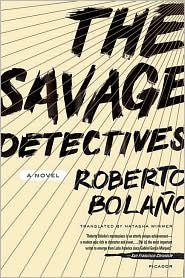 |
The Savage Detectives, by Roberto Bolaño Remembering what an influence Kerouac’s On the Road had on me as a 14-year-old, I picked it up again two years ago and discovered that Kerouac, like Ayn Rand, doesn’t age well. Bolaño’s The Savage Detectives is what I wanted my adult experience of reading On the Road to be. I couldn’t put it down. The Savage Detectives, like On the Road, is a story of a generation. The characters are fascinating and unforgettable. It’s also a damn good mystery. The narrative structure is particularly striking: the first section of the book is the diary of an aspiring poet from Mexico City who vanishes into the wild west Mexican state of Sonora along with a couple of radical poets and a runaway prostitute, searching for the lost founder of a literary movement; the center section is made up of interviews with people around the world (South and Central America, Mexico, the USA, Italy, Spain, Israel, parts of Africa) whose lives were touched by the radical poets both before and after their disappearance into Sonora; the last section is again the diary of the aspiring poet, divulging some — but not all! — of the events that caused the the radical poets to flee Mexico and go on the run; but by God there is so much more to the story; it must be read to be believed and I will be telling people about this book for years. Borges and Marquez aside, I knew nothing about Latin American literature. Now I know a little more, and it has whetted my appetite. 2666, here I come. |
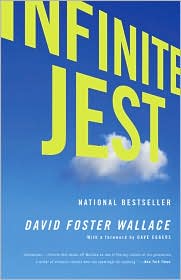 |
Infinite Jest, by David Foster Wallace Epic indeed. This is a two-monther. Unfortunately, I started with a library copy, and after two renewals found myself only a third of the way in. I’m going to have to buy my own copy to finish at leisure. Or maybe not. People compare Wallace to Pynchon, and for good reason. Wallace flew perhaps even higher than Pynchon flies. He was a masterful writer, but what was it all for? The more I learn about Wallace’s depression and eventual suicide, the less I’m inclined to finish Infinite Jest. Depression — though intellectually I know it is a serious disease afflicting many — is something I feel no empathy for. Since depression is such a large part of the narrative of Infinite Jest, I can’t separate Wallace from the novel, and my lack of empathy for Wallace affects my reading of the novel. Wallace executes his literary hijinks — obscure references and words, brilliant conceits, metaphors within metaphors — with staggering ease, but where did he want to take us with them? You know, you can watch someone perform flawless aerobatics for only so long before it occurs to you that aircraft are built to accomplish specific tasks — to transport people and cargo from point A to point B, to drop bombs, to shoot down enemy aircraft — and when is this pilot going to quit shining his ass and get down to business? Never, that’s when, because the silly ass quit taking his meds (why do they always do that?) and hung himself. |